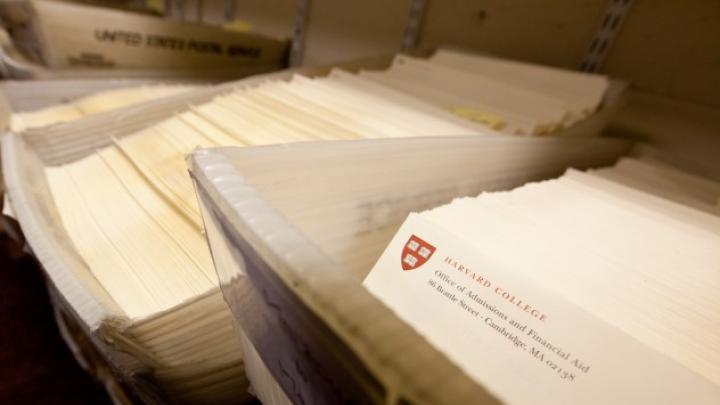The College has admitted 1,962 of 42,749 applicants to the class of 2022 (nearly half of them—964—had already been admitted through early action in December). The 4.6 percent admit rate is Harvard’s lowest ever, reflecting both an 8 percent increase in the number of applications received this year and the admissions office’s announcement that it would accept slightly fewer students this year after enrollment in the class of 2021 exceeded expectations.
First-generation students represent 17.3 percent of those admitted (up from 15.1 percent last year), and 20.3 percent of the cohort are eligible for federal Pell Grants, a commonly used proxy for low-income status. The share of low-income students is the College’s highest ever, according to the admissions office—notable given the College’s largely affluent student body (as of a few years ago, the majority of students came from families in the top 10 percent of the income distribution). Sixteen percent of current undergraduates receive Pell Grants.
The racial profile of the class is similar to last year’s: African-Americans represent 15.5 percent of admits, Asian-Americans 22.7 percent, Latinos 12.2 percent, Native Americans 2 percent, and Native Hawaiians 0.4 percent. Twelve percent are international students.
Through the Harvard Financial Aid Initiative (HFAI), students from families earning less than $65,000 per year pay nothing to attend Harvard, and those from families earning up to $150,000 typically pay on a graduated scale, up to 10 percent of their families’ annual incomes. HFAI “has totally transformed our ability to reach out to students who traditionally might not have thought about applying to Harvard–or to any college–because of college costs. The clear message HFAI provides—that college is affordable for low- and middle-income students—has led many students to Harvard and to other public and private colleges as well,” said William R. Fitzsimmons, dean of admissions and financial aid.
The sticker price (before financial aid) of attendance will increase to $67,580 next year, up 3 percent from $65,609 this year. Total cost of attendance crossed $60,000 for the first time in the 2016-2017 academic year, $50,000 for the first time in 2010-2011, and $40,000 in 2005-2006 (tuition data going back to 1985 are available in the Harvard University Fact Book).
This summer, the College plans a pilot launch of an optional four-day pre-orientation program for low-income and first-generation students. The Freshman Dean’s Office hasn’t released details of the program (a summary appears here), but it would, presumably, resemble some version of the more substantial programs at peer schools, which combine coursework and immersion in the social environment of college.
The College will also continue its start-up grant program, launched in 2016, for freshmen from families earning $65,000 or less. Eligible students receive grants of $2,000 to spend on whatever they choose, like books or meals out. The grants are intended to ease students’ transition to life at Harvard, enabling them to participate fully in the academic and social experience.








